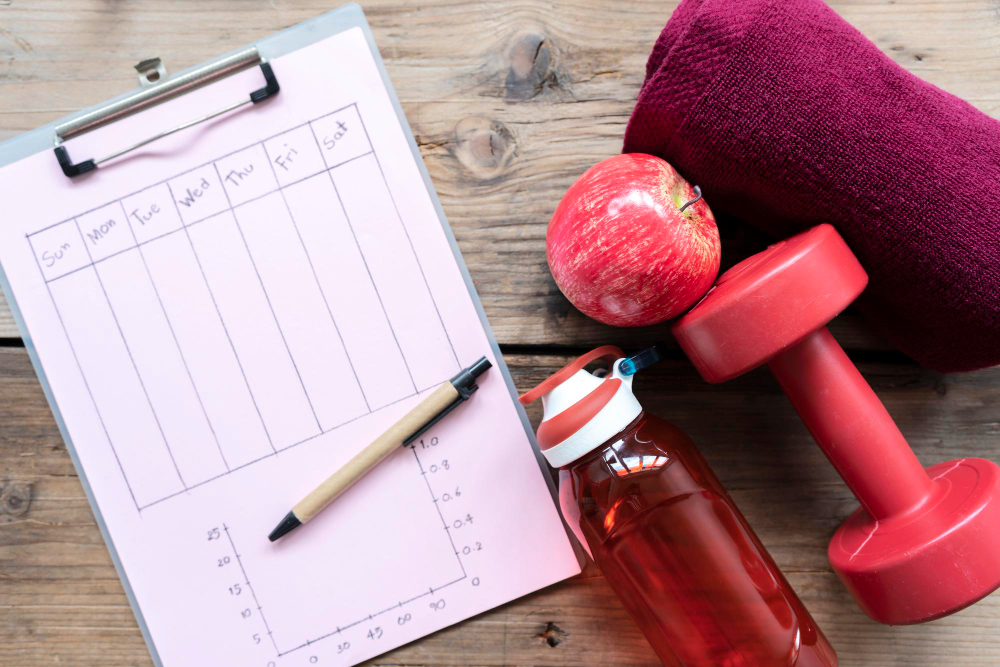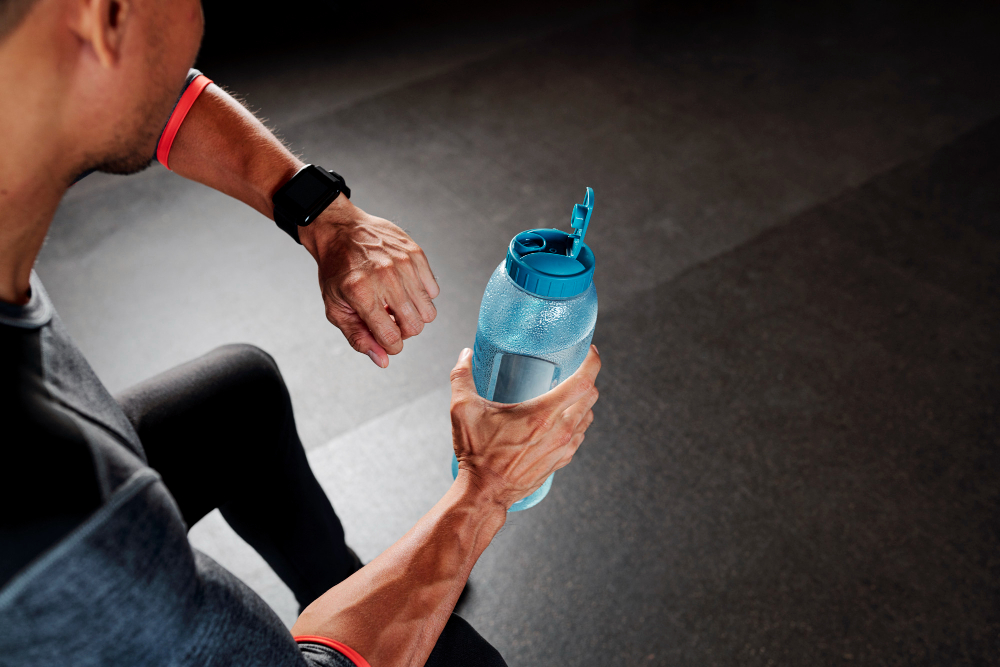Understanding The Role Of Sports Nutrition In the world of sports and athletics, proper nutrition plays a vital role in maximizing performance and achieving optimal results. From enhancing endurance to boosting muscle recovery, the right nutrients can make all the difference in athletes' performance levels. This blog post delves into the importance of sports nutrition and provides essential insights on key nutrients for athletic optimization, pre-workout fueling strategies, post-workout recovery nutrition tips, as well as hydration guidelines. Whether you're a professional athlete or a fitness enthusiast, understanding and implementing these nutrition strategies can help take your athletic performance to new heights.

Sports nutrition plays a crucial role in the performance and overall well-being of an athlete. It involves understanding and utilizing the right balance of nutrients, food groups, and hydration strategies to optimize athletic performance. With the right nutrition plan, athletes can improve their stamina, strength, endurance, and recovery time. In this blog post, we will explore the key components of sports nutrition and how they contribute to an athlete's success.
Nutrients for Energy: One of the primary roles of sports nutrition is to provide athletes with the necessary energy to perform at their best. Carbohydrates are the body's preferred source of fuel and should make up a significant portion of an athlete's diet. They provide readily available energy for high-intensity activities. Proteins are essential for muscle repair and growth, and fats help in providing sustained energy during prolonged exercise.
Vitamins and Minerals: In addition to macronutrients, athletes need a variety of vitamins and minerals to support their athletic endeavors. Micronutrients like vitamin C, vitamin E, and iron play a crucial role in reducing oxidative stress and boosting the immune system. Calcium and vitamin D are essential for bone health, which is particularly important for athletes prone to stress fractures.
Hydration: Hydration is often overlooked but is a fundamental component of sports nutrition. Water is vital for regulating body temperature, lubricating joints, and transporting nutrients to cells. Athletes should monitor their fluid intake before, during, and after exercise to optimize performance and prevent dehydration. Electrolytes such as sodium and potassium are also important for maintaining fluid balance and preventing muscle cramps.
| Nutrients | Food Sources |
|---|---|
| Carbohydrates | Grains, fruits, vegetables |
| Proteins | Lean meats, poultry, fish, legumes |
| Fats | Avocados, nuts, olive oil |
| Vitamins & Minerals | Fruits, vegetables, whole grains |
| Hydration | Water, electrolyte-rich drinks |
Understanding the role of sports nutrition is key for athletes to maximize their performance potential. By fueling their bodies with the right nutrients, vitamins, minerals, and fluids, athletes can enhance their endurance, strength, and overall athletic performance. Whether you're a professional athlete or a weekend warrior, incorporating the principles of sports nutrition into your training regimen can make a significant difference in your success. So, remember to stay fueled, hydrated, and properly nourished to achieve your athletic goals!
Athletes are always looking for ways to enhance their performance and improve their results. While training, rest, and recovery play crucial roles in achieving optimal athletic performance, the importance of proper nutrition should not be underestimated. Key nutrients play a vital role in optimizing athletic performance and ensuring that athletes have the energy, strength, and endurance needed to perform at their best.
One essential nutrient for athletes is protein. Protein is the building block of muscles and is essential for muscle repair and growth. Athletes should aim to consume an adequate amount of protein to support their training and performance goals. Good sources of protein include lean meats, poultry, fish, eggs, dairy products, and plant-based protein sources such as legumes and tofu.
| Vitamin C | Vitamin D | Calcium |
|---|---|---|
| Vitamin C plays a crucial role in supporting the immune system and protecting against oxidative stress, which can occur during intense exercise. Citrus fruits, berries, kiwi, and bell peppers are all rich sources of vitamin C. | Vitamin D is essential for bone health and muscle function. It also plays a role in regulating the immune system. Natural sources of vitamin D include sunlight, fatty fish, fortified dairy products, and eggs. | Calcium is crucial for maintaining strong bones and preventing stress fractures. It is also essential for muscle contractions. Dairy products, leafy greens, tofu, and almonds are all excellent sources of calcium. |
Hydration is another vital aspect of optimizing athletic performance. Athletes should stay well-hydrated before, during, and after exercise to prevent dehydration, which can negatively impact performance. It's recommended for athletes to drink water regularly throughout the day and consume electrolyte-rich beverages during intense workouts.
In conclusion, proper nutrition is essential for optimizing athletic performance. Athletes should focus on consuming adequate amounts of protein and carbohydrates, as well as ensuring they get key nutrients such as vitamin C, vitamin D, and calcium. Additionally, staying hydrated is crucial for maintaining optimal performance. By paying attention to their nutritional needs, athletes can enhance their performance and achieve their goals effectively.

Proper fueling before a workout is essential for athletes to optimize their performance and achieve their fitness goals. It is important to consume the right nutrients that provide the energy and stamina required during intense physical activities. By following effective pre-workout fueling strategies, athletes can significantly enhance their performance and prevent fatigue and muscle cramps. Here are three key strategies to consider:
When it comes to fueling before a workout, timing plays a crucial role. It is recommended to eat a balanced meal containing carbohydrates, proteins, and fats approximately 2-3 hours before the workout. This allows enough time for digestion and absorption of nutrients, providing a steady source of energy during the exercise. However, if time does not permit, a small snack or a liquid meal replacement can be consumed 30-60 minutes before the workout.
Carbohydrates are the primary source of fuel for our muscles. It is important to include complex carbohydrates in the pre-workout meal to ensure sustained energy release during the exercise. Good sources of complex carbohydrates include whole grains, fruits, and vegetables. These foods provide a steady supply of glucose, which muscles use for energy.
Protein is essential for muscle repair and recovery. Including a moderate amount of protein in the pre-workout meal can help prevent muscle breakdown during the exercise. Lean protein sources such as chicken, fish, tofu, or Greek yogurt can be added to the meal. Protein shakes or bars can also be consumed as a convenient option.
By following these pre-workout fueling strategies, athletes can ensure their bodies are adequately fueled to perform at their best. It is essential to listen to your body and experiment with different types and amounts of foods to find what works best for you. Remember, what you eat before a workout can greatly impact your performance, so fuel wisely and conquer your fitness goals!
Post-workout recovery nutrition plays a crucial role in optimizing athletic performance and aiding in muscle recovery. After an intense workout, it is important to replenish the body with the right nutrients to promote muscle repair, reduce inflammation, and restore energy levels. In this blog post, we will discuss some essential tips and guidelines for post-workout recovery nutrition.
First and foremost, it is important to consume an adequate amount of protein after a workout. Protein is the building block of muscles and helps in repairing any damage caused during exercise. Aim to consume around 20-30 grams of protein within 30 minutes to an hour post-workout. Good sources of protein include lean meats, poultry, fish, eggs, dairy products, and plant-based options such as tofu, tempeh, and legumes.
Next, carbohydrates play a crucial role in restoring energy levels and replenishing glycogen stores. Glycogen is the primary fuel source for muscles during exercise, and consuming carbohydrates after a workout helps in replenishing these stores. Opt for complex carbohydrates such as whole grains, fruits, vegetables, and legumes. These provide a steady release of energy and also supply essential vitamins and minerals.
In addition to protein and carbohydrates, it is important to include antioxidants in your post-workout recovery nutrition. Antioxidants help in reducing inflammation and oxidative stress caused by intense exercise. Include a variety of colorful fruits and vegetables in your post-workout meal to obtain a wide range of antioxidants. Berries, spinach, kale, citrus fruits, and bell peppers are excellent choices.
| Post-Workout Recovery Nutrition Tips: |
|---|
| 1. Consume adequate protein to aid in muscle repair. |
| 2. Include complex carbohydrates to replenish glycogen stores. |
| 3. Incorporate antioxidants from colorful fruits and vegetables. |
| 4. Include a source of healthy fats in your post-workout meal. |
| 5. Hydrate well by drinking plenty of water. |
| 6. Consider adding supplements for enhanced recovery. |
By following these post-workout recovery nutrition tips, you can support your body's recovery process, optimize athletic performance, and achieve your fitness goals more effectively.

Hydration is of utmost importance for athletes to maintain optimal performance and prevent dehydration during intense physical activity. Staying properly hydrated is essential for various bodily functions, including regulating body temperature, lubricating joints, transporting nutrients, and removing waste products. Dehydration can lead to fatigue, muscle cramps, dizziness, and in severe cases, heatstroke. To avoid dehydration and ensure peak performance, athletes should follow specific guidelines for hydration.
One key guideline for athletes is to consume adequate fluids before, during, and after exercise. It is recommended to start hydrating at least four hours before engaging in physical activity by consuming approximately 5-7 milliliters of fluid per kilogram of body weight. During exercise, athletes should aim to drink about 150-350 milliliters of fluid every 15-20 minutes, depending on the intensity and duration of their workout. After exercise, it is crucial to replenish fluid losses by drinking 450-675 milliliters of fluid for every 0.5 kilograms of body weight lost during exercise.
Another important consideration for athletes is to choose the right type of fluids for hydration. Water is sufficient for activities lasting less than an hour, but for prolonged or intense exercise sessions, sports drinks that contain electrolytes and carbohydrates can be beneficial. Electrolytes, such as sodium and potassium, help replace the minerals lost through sweat, while carbohydrates provide a source of energy. However, it is essential to avoid sugary drinks and carbonated beverages, as these can lead to discomfort and hinder hydration.
| Signs of Dehydration | Hydration Strategies |
|---|---|
| Fatigue and lethargy | Drink fluids before, during, and after exercise |
| Muscle cramps | Consume sports drinks with electrolytes for prolonged or intense exercise |
| Dizziness and lightheadedness | Monitor urine color and increase fluid intake if urine is dark |
Ultimately, adequate hydration is crucial for athletes to optimize their performance and prevent negative effects of dehydration. By following the recommended guidelines and paying attention to their body's hydration needs, athletes can maintain peak performance and reduce the risk of heat-related illnesses. Remember, staying properly hydrated is not only important during physical activity but also throughout the day to support overall health and well-being.